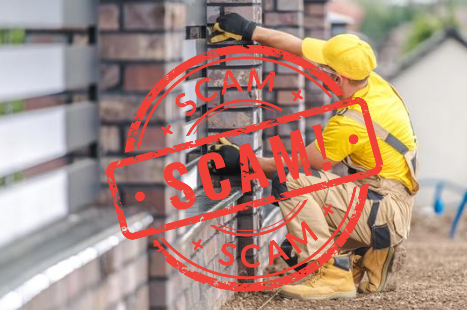Unraveling the Overpayment Scam: Stay Informed, Stay Protected


Understanding the Overpayment Scam: The overpayment scam typically involves a scammer posing as a legitimate entity, often a buyer, employer, or someone offering a service. The scammer contacts the victim, claiming they have overpaid for a product or service due to an error or other unforeseen circumstance. To rectify the alleged overpayment, the victim is then requested to refund the excess amount via a specific method, which is usually a fake check, wire transfer, or an online payment platform.
How It Works:
-
Contact Initiation: The scam starts with an unsolicited contact, often via email, phone call, or messaging, from someone posing as a buyer, employer, or service provider.
-
Claim of Overpayment: The scammer alleges that they have overpaid for a product or service, providing a seemingly plausible reason for the error.
-
Refund Request: To rectify the overpayment, the victim is asked to refund the excess amount using a specified payment method, which is usually one that is difficult to trace.
-
Fake Payments: The victim receives a fraudulent check or payment, which may initially appear legitimate. Believing they are acting in good faith, the victim refunds the alleged overpayment.
-
Unraveling the Scam: Eventually, the victim discovers that the initial payment was fake, leaving them out of pocket for the refunded amount.
Red Flags to Watch Out For:
-
Unsolicited Contacts: Be wary of unexpected communications, especially if they involve financial transactions or overpayments.
-
Pressure Tactics: Scammers often create a sense of urgency, pressuring victims to act quickly without thorough consideration.
-
Overly Generous Offers: If an offer seems too good to be true, it probably is. Be skeptical of situations where you are asked to refund overpayments.
-
Unusual Payment Methods: Fraudsters often request payment through unconventional or untraceable methods.
Protecting Yourself:
-
Verify Contacts: Verify the legitimacy of the person or entity contacting you. Cross-reference contact details and be cautious of inconsistencies.
-
Independently Verify Payments: Independently verify the legitimacy of any payment received before initiating any refunds.
-
Secure Payment Channels: Use secure and traceable payment methods for transactions. Avoid wire transfers or unconventional payment platforms.
-
Educate Yourself: Stay informed about common scams and be vigilant. Awareness is a powerful tool in protecting yourself from potential threats.
As technology evolves, so do the tactics of scammers. The overpayment scam is a poignant example of how deception can take various forms. By staying informed, exercising caution, and verifying details independently, you can fortify yourself against falling victim to such schemes. Remember, vigilance is the key to staying one step ahead of those who seek to exploit trust and goodwill. Stay informed, stay protected.
Looking for contractor suggestions? Reach out! I've got a list of trustworthy, vetted contractors ready to connect you with the right one!
Categories
Recent Posts









